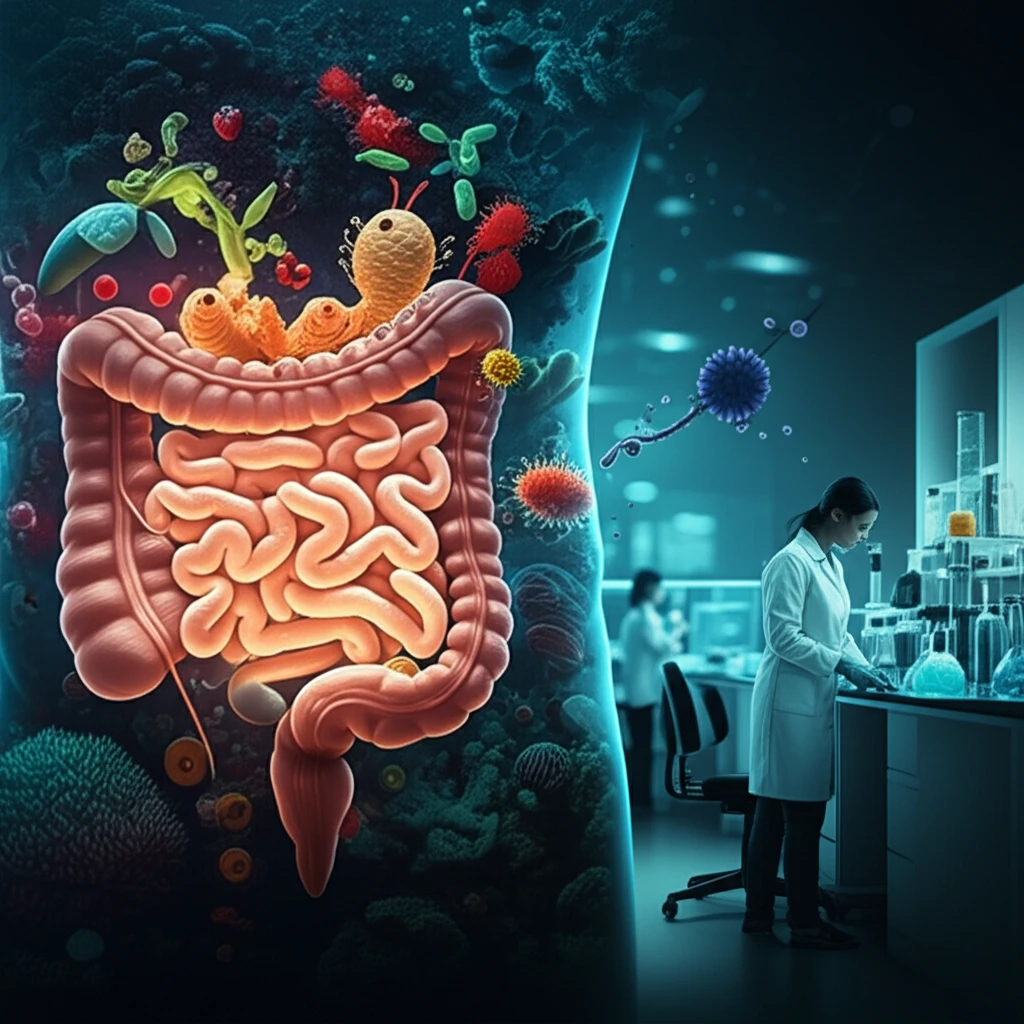
Unlocking Nature's Pharmacy: How Scientists are Tapping into the Power of Microbes
"From coral reefs to the human gut, the microscopic world holds the key to a new era of medicine and sustainable solutions."
In a world grappling with antibiotic resistance, climate change, and food scarcity, scientists are increasingly turning to an unlikely source for solutions: the microscopic world. From the depths of the ocean to the vast expanse of the human gut, microorganisms are revealing themselves as powerful allies in our quest for a healthier and more sustainable future. This article delves into the exciting discoveries that are reshaping our understanding of the natural world and its potential to solve some of humanity's most pressing challenges.
The field of microbiology, once relegated to the domain of infectious diseases, is now at the forefront of innovation across a diverse range of fields. Researchers are uncovering the secrets of microbial communities, exploring their intricate interactions, and harnessing their unique capabilities to create new medicines, improve crop yields, and even clean up environmental disasters. The implications of this research are vast, offering the potential to transform healthcare, agriculture, and environmental practices.
This exploration will focus on the fascinating ways scientists are harnessing the power of microbes. We'll uncover how these tiny organisms are leading to groundbreaking advancements in areas like antibiotic development, sustainable agriculture, and environmental remediation. Get ready to be amazed by the power of the unseen world and its potential to transform our lives and the planet.
The Microbiome: A Universe Within

Before diving into specific applications, it's important to understand the fundamental concept of the microbiome. Every living organism, from the smallest plant to the largest whale, is home to a vast community of microorganisms. These communities, known as microbiomes, are incredibly diverse, consisting of bacteria, fungi, viruses, and other tiny life forms. The human gut microbiome, for example, is a complex ecosystem containing trillions of microorganisms, playing a crucial role in digestion, immunity, and overall health.
- Diversity is Key: The more diverse a microbiome is, the more resilient it tends to be. A diverse microbiome is better equipped to handle changes in the environment and protect against disease.
- Interconnectedness: Microbes within a community interact with each other, forming intricate networks. These interactions can be beneficial, harmful, or neutral, shaping the overall function of the microbiome.
- Host-Microbe Interactions: Microbiomes are not isolated entities; they interact with their hosts in complex ways. These interactions can involve nutrient exchange, immune system modulation, and even behavioral changes.
A Future Powered by the Unseen World
The field of microbiology is undergoing a period of unprecedented discovery and innovation. As scientists continue to unravel the secrets of the microbial world, we can expect even more groundbreaking advances in the years to come. By embracing the power of microbes, we are not only gaining new insights into the fundamental workings of life but also opening up new avenues for creating a healthier, more sustainable, and resilient future for all. The story of microbiology is far from over; it's a story that continues to unfold, full of excitement and promise.
